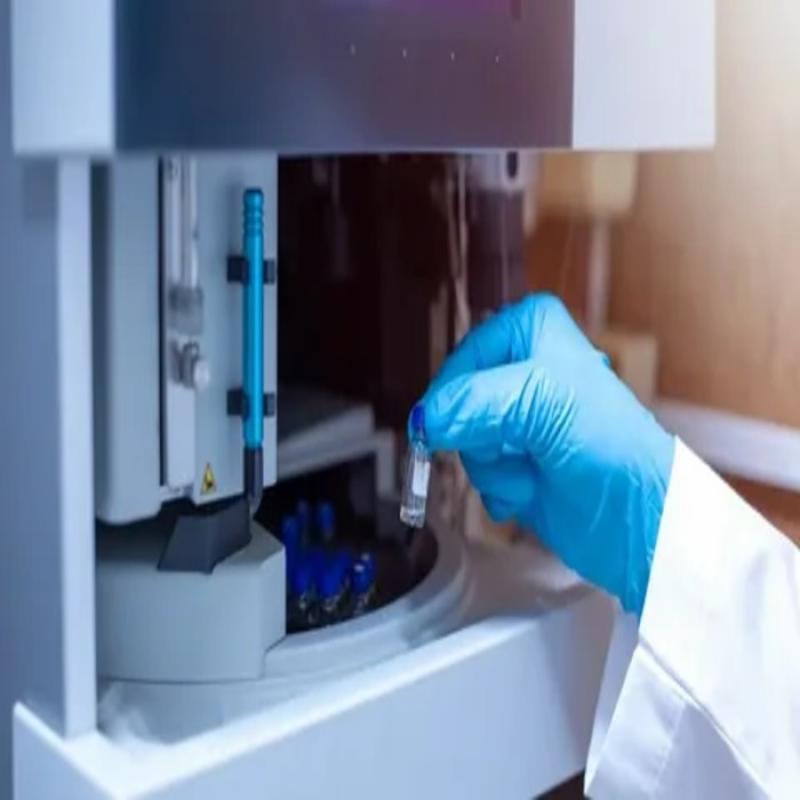Liquid Chromatography Mass Spectrometry: A Powerful Analytical Technique for Separating and Identifying Compounds
LCMS
Liquid chromatography mass spectrometry, or LCMS, is an analytical chemistry technique that combines the physical separation capabilities of liquid chromatography (or LC) with the mass analysis capabilities of mass spectrometry (MS). LCMS is commonly used in pharmaceutical, metabolomics, medical diagnostic, environmental testing and forensic industries for purposes like drug quantification, detection of impurities, identification of metabolic byproducts, toxicological screening and more.
How does LCMS work?
Liquid Chromatography Mass Spectrometry (LCMS) system first separates the compounds in a sample into individual components. This works by pumping a pressurized liquid, known as the mobile phase, through a packed column called the stationary phase. As different compounds within the sample interact differently with the stationary and mobile phases, they elute out of the column at different retention times.
The separated molecular ions or ion fragments then enter the mass spectrometer. Here, they are bombarded by electrons which cause them to fragment into lighter ions. The mass-to-charge ratios of these ions are then measured using a detector, generating a mass spectrum that is like a molecular "fingerprint" of each compound. By matching these spectra to a database of known compounds, LCMS can then identify the molecules present in the original sample.
Applications of LCMS in Various Fields
Pharmaceutical Analysis
In drug discovery and manufacturing industries, liquid chromatography mass spectrometry plays a key role in several processes like quantitative drug analysis. It allows identification and quantification of the active pharmaceutical ingredients as well as detection of potential impurities. LCMS is also useful for studying drug metabolism and determining metabolic pathways. Its high sensitivity enables quantification of very low levels of drugs and metabolites in body fluids like plasma or urine in pharmacokinetic studies.
Metabolomics Research
Metabolomics is the analytical study of small molecule metabolites present in biological samples like tissues, biofluids or whole organisms. LCMS enables comprehensive metabolic profiling by separating and identifying hundreds of metabolites in a single run. This has applications in biomarker discovery, drug development, toxicological assessments and clinical diagnosis of inborn errors of metabolism. LCMS datasets can provide insights into changes in metabolic pathways caused by internal or external stimuli.
Environmental Analysis
Liquid chromatography mass spectrometry plays a vital role in environmental testing labs for purposes like water quality monitoring, analysis of hazardous wastes, evaluation of air quality, food safety testing and more. It allows identification of chemical contaminants even at trace levels in complex environmental matrices like soil, sediments and biota. LCMS data helps assess pollutant sources and exposure patterns which contributes to environmental regulation and remediation efforts.
Forensic Toxicology
To evaluate potential poisoning cases, forensic toxicologists use LCMS to screen biological samples for drugs of abuse, poisons or toxins. Due to its high sensitivity and ability to detect multiple analytes simultaneously, it has many advantages over immunoassays. LCMS enables toxicological profiling for applications like determination of cause of death during autopsy investigations. It aids in monitoring therapeutic drug levels as evidence in suspected overdose cases.
Advantages and Considerations of LCMS
Key advantages of liquid chromatography mass spectrometry include high selectivity and sensitivity allowing detection of analytes at very low concentrations. It has a wide linear dynamic range and offers simultaneous analysis of multiple compounds in a single run. LCMS enables definitive identification of unknown compounds through mass spectrum matching. The technique also offers opportunities for high throughput processing of large number of samples. However, factors like initial cost of the system, requirement of experienced operator and involvement of complex data analysis are some practical considerations for LCMS use.
In the liquid chromatography mass spectrometry is a powerful analytical chemistry technique that has revolutionized fields like pharmaceutical industry, clinical research and forensic science by enabling separation, identification and quantification of myriad organic molecules from complex samples. Owing to its high selectivity, sensitivity and information richness, LCMS will continue to remain amainstay of applications in applied analytical chemistry and biomedical research domains.
For Deeper Insights, Find the Report in the Language that You want.
About Author:
Vaagisha brings over three years of expertise as a content editor in the market research domain. Originally a creative writer, she discovered her passion for editing, combining her flair for writing with a meticulous eye for detail. Her ability to craft and refine compelling content makes her an invaluable asset in delivering polished and engaging write-ups.
(LinkedIn: https://www.linkedin.com/in/vaagisha-singh-8080b91)
